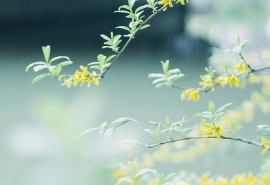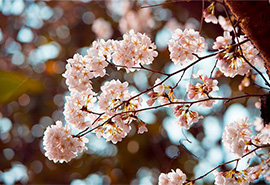
It is pleasant to do…造句
造句:
At our time of life, it is not so pleasant I can tell you, to be making new acquaintance every day; but for your sakes, we would do any thing.
老实跟你们说吧,我们老夫妻活到这么一把年纪了,哪儿有兴致天天去交朋结友;可是为了你们,我们随便什么事都乐意去做。
固定词组:
pleasant to do
愉快地做
例句:
1.It's al//www.souquanme.comways pleasant to do what you're good at doing.
做自己擅长的事总是令人愉快的。
2.At our time of life, it is not so pleasant I can tell you, to be making new acquaintance every day; but for your sakes, we would do any thing.
老实跟你们说吧,我们老夫妻活到这么一把年纪了,哪儿有兴致天天去交朋结友;可是为了你们,我们随便什么事都乐意去做。
At our time of life, it is not so pleasant I can tell you, to be making new acquaintance every day; but for your sakes, we would do any thing.
老实跟你们说吧,我们老夫妻活到这么一把年纪了,哪儿有兴致天天去交朋结友;可是为了你们,我们随便什么事都乐意去做。
固定词组:
pleasant to do
愉快地做
例句:
1.It's al//www.souquanme.comways pleasant to do what you're good at doing.
做自己擅长的事总是令人愉快的。
2.At our time of life, it is not so pleasant I can tell you, to be making new acquaintance every day; but for your sakes, we would do any thing.
老实跟你们说吧,我们老夫妻活到这么一把年纪了,哪儿有兴致天天去交朋结友;可是为了你们,我们随便什么事都乐意去做。
英语造句。,
英语陈述句的主、谓、宾表达方式与语序和汉语相同;疑问句则有些差异。(1)陈术句主体结构均由“主+谓+宾”构成,但英语句子的修饰成分位置可以很灵活,结构方面比汉语更加严谨,要求严格的主谓对应,且主干分明。因此,英语陈述句的造句中应该首先把主、谓、宾表达出来,然后再把修饰成分加在适当的位置上。例1:3年前我们还在北京大学上学的时候就看过这部电影。首先找出句子的主、谓、宾语:我们 看过 这部电影。把由主、谓、宾组成的简单句子译成相应的英语,应为:We saw this film. 然后加上时间状语成分“3年前”及其定语“当我们还在北京大学上学的时候”。整个句子英语表达为: Three years ago when we studied in Beijing University, we saw this film. 也可以把状语放在句尾,变为: We saw this f//www.souquanme.comilm three years ago when we studied in Beijing University. (2)英语疑问句与汉语有些不同,但也并不难学。汉语是直接在句子后面加个疑问词“吗”,变为疑问句;而英语则需要借助疑问助词,在英语句子之前加上疑问助词、句子后面加问号,就变成了疑问句。英语一般时态陈述句的疑问词多为do或did,分别用于一般现在时与一般过去时;用了do或did作疑问词之后,句子中的谓语则用动词原形。例2:3年前你们还在北京大学上学的时候就看过这部电影吗? Did you see this film three years ago when you studied in Beijing University? (3)判断句的语序与汉语一样一样的,判断句变为疑问句只要把表示判断的“是”提到句首即可。例3:那个人是我的老师。 That man is my teacher. 那个人是你的老师吗? Is that man your teacher? (4)英语完成时变为疑问句时,只需把完成时的助动词have或had提到句首、句后加问号就行。这一点与判断句变为疑问句的变法一样。例4:我已经完成了家庭作业。 I have fininshed my homework. 你已经完成了家庭作业吗? Have you fininshed your homework ? 还有其他句式,其他时态,大同小异,弄清楚了就不大难的。祝你好运!
英语造句
pleasant cold hot cool warm windy cloudy foggy sunny bright clear fine clo//www.souquanme.comudless raining snowing dry wet humid snowy ——————分开造句pleasant:A pleasant scene, pleasant sensations.
cold: Milk sometimes freezes in very cold weather; you may have seen the frozen mild stand up high above the top of a bottle, pushing the lid off the bottle.(有时候牛奶在寒流的天气里结冰,你也许看到过冰冻了的牛奶;高高的耸出瓶口,把瓶盖顶开。)
hot:It was very hot yesterday.
cool:We walked a cool twenty m搜趣网iles.(我们走了整整二十英里。)
warm:It is going to warm tomorrow .
windy:I like fall, it is windy.
cloudy:It was cloudy this morning, but it turned out fine.
foggy:It was a very foggy day in London.(这是伦敦的一个大雾天。)
sunny:A gay, sunny room.
bright:Bright light disconcerted her.(耀眼的光射得她不知所措。)
clear:He speaks loud and clear.
fine:Covered with fine, soft hair.(多毛的长着细而软的毛)
cloudless:The sky is quit搜趣网e blue and cloudless.
raining:It is raining hard.(雨正下得很大。)
snowing:It's snowing heavily.(雪下得很大。)
dry:The dry sticks burnt into flames.(枯枝忽然燃烧起来。)
wet:Wet clothes cling to the body.(湿衣服黏在身体上。)
humid:The substrate consists of humid peat.(地层应由湿气重的泥炭土构成。)
snowy:There are snowy peaks above.(上面是白雪皑皑的群峰。)
终于造完了 希望能帮到楼主~~
cold: Milk sometimes freezes in very cold weather; you may have seen the frozen mild stand up high above the top of a bottle, pushing the lid off the bottle.(有时候牛奶在寒流的天气里结冰,你也许看到过冰冻了的牛奶;高高的耸出瓶口,把瓶盖顶开。)
hot:It was very hot yesterday.
cool:We walked a cool twenty m搜趣网iles.(我们走了整整二十英里。)
warm:It is going to warm tomorrow .
windy:I like fall, it is windy.
cloudy:It was cloudy this morning, but it turned out fine.
foggy:It was a very foggy day in London.(这是伦敦的一个大雾天。)
sunny:A gay, sunny room.
bright:Bright light disconcerted her.(耀眼的光射得她不知所措。)
clear:He speaks loud and clear.
fine:Covered with fine, soft hair.(多毛的长着细而软的毛)
cloudless:The sky is quit搜趣网e blue and cloudless.
raining:It is raining hard.(雨正下得很大。)
snowing:It's snowing heavily.(雪下得很大。)
dry:The dry sticks burnt into flames.(枯枝忽然燃烧起来。)
wet:Wet clothes cling to the body.(湿衣服黏在身体上。)
humid:The substrate consists of humid peat.(地层应由湿气重的泥炭土构成。)
snowy:There are snowy peaks above.(上面是白雪皑皑的群峰。)
终于造完了 希望能帮到楼主~~





